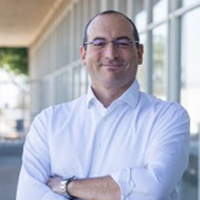
Memory-Driven Computing (Memory Wants To Be Free)
Paolo Faraboschi, Hewlett Packard Enterprise
The data deluge caused by proliferation of connected data sources is causing an unprecedented imbalance in the ability of our IT infrastructure to access and mine data. While it is relatively easier to provision compute resource, it is much more challenging to provision the necessary data resources to feed them. This is true across the entire memory and storage hierarchy which is going through a profound transformation, with the appearance of “storage-class memory” technology in the mix. This talk discusses why we need a new approach to architect the memory and storage systems, what the motivating use cases are, the obstacles, and what we can do to address them. It then introduces the technology behind the recently announced Gen-Z consortium (www.genzconsortium.org), an open systems interconnect designed to provide memory semantic access to data and devices via direct-attached, switched, or fabric topologies.
Paolo Faraboschi
Paolo Faraboschi is a Fellow and VP at Hewlett Packard Enterprise. His interests are at the intersection of system architecture and software. He is currently working on The Machine project, researching how we can build better memory-driven computing systems and how we can apply them towards Exascale. From 2010 to 2104, he worked on low-energy servers and HP project Moonshot. From 2004 to 2009, at HP Labs in Barcelona, he led a research activity on scalable system-level simulation and modelling. From 1995 to 2003, at HP Labs Cambridge, he was the principal architect of the Lx/ST200 family of VLIW cores, widely used in video SoCs and HP’s printers. Paolo is an IEEE Fellow and an active member of the computer architecture community. He is an author on 30 patents over 100 publications and the book “Embedded Computing: a VLIW approach”. Before joining HP in 1994, he received a Ph.D. in EECS from the University of Genoa, Italy.